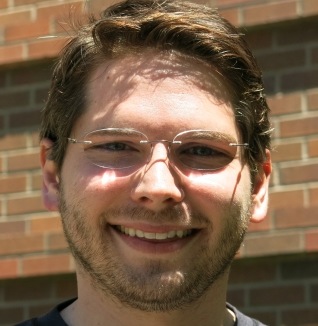Ph.D. student David Ozog Wins Department of Energy Fellowship

David Ozog, a Ph.D. student in the CIS department, has been awarded a Computational Science Graduate Fellowship (CSGF) from the Department of Energy. Ozog is one of 10 students nationwide to receive the fellowship and the only Oregon recipient in this year’s group of awardees, which includes students from Stanford, Harvard, MIT, UC-Berkeley, and other top tier academic institutions.
"This is a highly competitive fellowship that recognizes David’s academic accomplishments and future potential in computational science research," said Prof. Allen Malony, Ozog’s advisor.
The award provides up to four years of support for doctoral studies in areas that focus on the use of high-performance computing technology to solve complex problems in science and engineering. Ozog will receive a yearly stipend of $36,000, payment of all tuition and fees, an annual academic allowance to support professional development, purchasing of books/supplies, and travel to conferences. He will also participate in the fellowship's annual program review in Washington, D.C., and will be afforded the opportunity to complete a three-month practicum at one of 20 DOE laboratory sites.
Ozog received a master’s degree in chemistry from the UO in 2009, and a double B.S. in mathematics and physics from Whitman College . He is particularly interested in how high-performance computing can improve scientific applications in the area of computational chemistry. "One primary reason I think I received this fellowship is because of the interdisciplinary training I’ve received at UO in both the computer science and physical chemistry graduate programs," commented Ozog.
"Many of the world’s most pertinent energy problems are related to developing our fundamental understanding of how chemical systems work, which can require a huge number of concurrent calculations," Ozog said. "Thus far, my current research has been in three primary areas: computational quantum chemistry, electromagnetic head modeling, and parallel runtime systems." For more information, visit http://ix.cs.uoregon.edu/~ozog/index.html
Launched in 1991 to address the shortage of computational scientists in the United States, the Department of Energy’s Computational Science Graduate Fellowship (DOE CSGF) continues its commitment to training the next generation of scientific leaders. It is jointly funded by the Office of Science and the National Nuclear Security Administration’s Office of Defense Programs. Applications are carefully reviewed by external committees of distinguished individuals representing the DOE national laboratories, academia and industry.